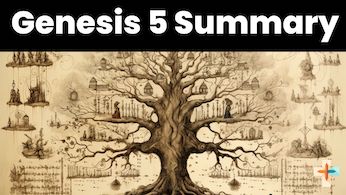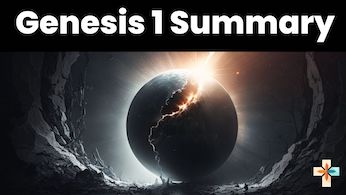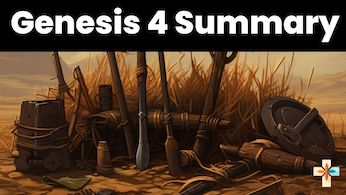Genesis 2 Summary Overview
Genesis 2 summary provides a more detailed account of the creation of humanity and introduces the Garden of Eden, a place of divine communion and the backdrop for humanity’s earliest experiences. This chapter further elaborates on the unique relationship between God and humanity, setting the stage for the unfolding drama of sin and redemption that characterizes the rest of Scripture.
I. God’s Rest and the Sanctification of the Seventh Day (Genesis 2:1-3)
The chapter begins with the conclusion of the creation account from Genesis 1. God completes his work on the seventh day and rests, marking the end of the creation process (2:1-2). God blesses and sanctifies the seventh day, establishing the principle of Sabbath rest as a time of reflection and rejuvenation (2:3).

Where are you on your Spiritual Journey? Discover where you are on your Spiritual Journey in just 60 seconds and find out your next steps.
Take Your Spiritual Journey QuizII. The Formation of Man and the Garden of Eden (Genesis 2:4-9)
Genesis 2:4 introduces a more detailed account of the creation of humanity, focusing on the intimate relationship between God and the first man, Adam. God forms Adam from the dust of the ground and breathes life into him, signifying our origin from and dependence on God (2:7). God then plants the Garden of Eden, a perfect and life-sustaining environment for Adam to inhabit (2:8-9). The garden is filled with all kinds of trees, including the Tree of Life and the Tree of the Knowledge of Good and Evil, which will play a crucial role in the story of humanity’s fall (2:9).
III. The Rivers and Boundaries of Eden (Genesis 2:10-14)
A river flows out of Eden, watering the garden and dividing into four rivers that define the geographical boundaries of the garden (2:10-14). These rivers, the Pishon, Gihon, Tigris, and Euphrates, connect Eden to the wider world and signify the abundance and life that flow from God’s presence.
IV. Man’s Purpose and Responsibility in Eden (Genesis 2:15-17)
God places Adam in the Garden of Eden to work and care for it (2:15), emphasizing humanity’s role as stewards of creation. God gives Adam permission to eat from any tree in the garden, except the Tree of the Knowledge of Good and Evil (2:16-17). This command introduces the concept of obedience and the consequences of disobedience, setting the stage for the fall of humanity in Genesis 3.
V. The Creation of Woman and the Institution of Marriage (Genesis 2:18-25)
Recognizing that it is not good for man to be alone, God decides to create a suitable helper for Adam (2:18). After forming the animals and bringing them to Adam to be named, God sees that none are a suitable companion for him (2:19-20). God then creates Eve from one of Adam’s ribs, signifying the intimate connection between man and woman (2:21-22). Adam recognizes Eve as “bone of his bones and flesh of his flesh,” and the institution of marriage is established (2:23-24). The chapter concludes with a description of the innocence and unity of the first human couple, who are naked and unashamed in each other’s presence (2:25).
Conclusion:
Genesis 2 provides a deeper understanding of humanity’s origins, our relationship with God, and the establishment of marriage. The events in this chapter highlight the beauty and harmony of God’s original creation, setting the stage for the subsequent narrative of sin and redemption. Through the exploration of the Garden of Eden and the creation of the first humans, we are reminded of our dependence on God, our responsibility as stewards of creation, and the significance of human relationships.
The idyllic setting of Genesis 2 also serves as a stark contrast to the brokenness and sin that will follow in Genesis 3. By appreciating the depth and richness of this chapter, we can better understand the overall message of Scripture and our role in the ongoing story of God’s relationship with humanity. The themes of obedience, stewardship, and relationships established in Genesis 2 will continue to reverberate throughout the rest of the Bible, offering valuable insights into our purpose and calling as followers of God.
Michael Ayers
As a dedicated single father, author, teacher, and web developer, I've built a successful entrepreneurial career. I'm responsible for designing, coding, writing, and producing all the content on this website and have generated over 1,000,000 plus page views on all the websites I manage. I hope you enjoy this site.
Where are you on your Spiritual Journey? Discover where you are on your Spiritual Journey in just 60 seconds and find out your next steps.
Take Your Spiritual Journey Quiz

